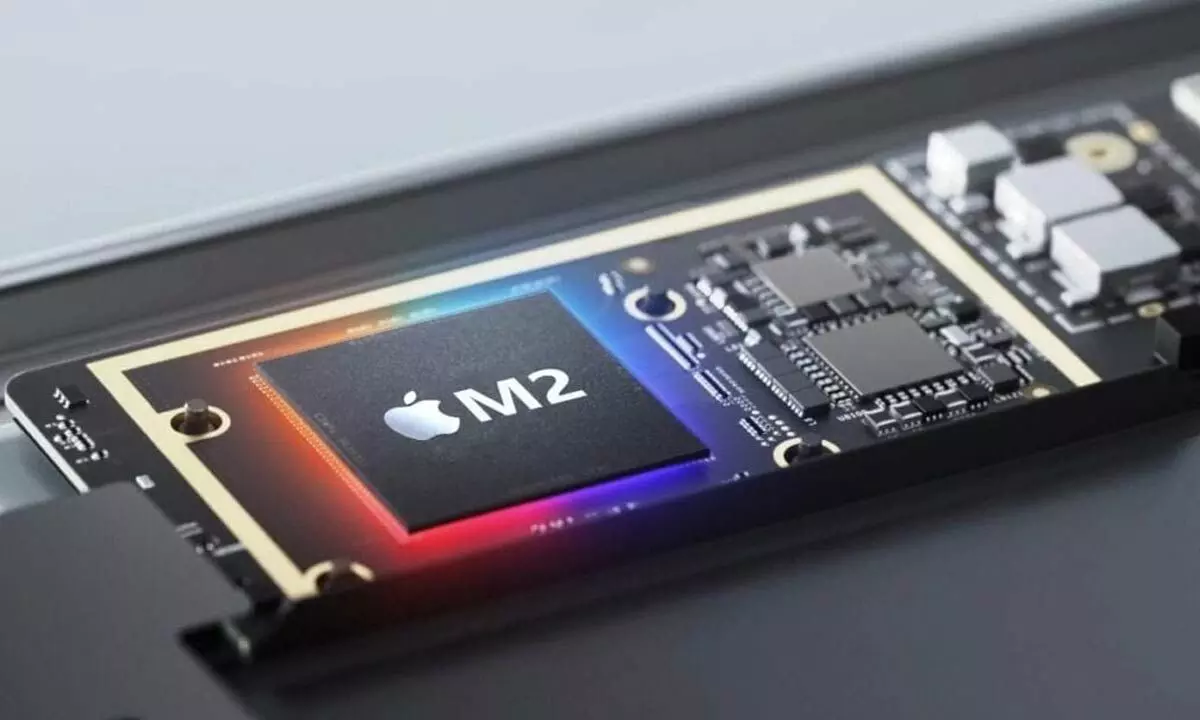Apple M2 Chip: Features, Specifications and Other Details

Apple M2 Chip: Features, Specifications and Other Details
Apple's M2 chip is coming in July 2022 - here's the latest news on what it could bring to Macs. Find all that you can expect from the M2 Pro, M2 Max and M3.
At the WWDC event, Apple revealed the details of the second generation of Apple silicon. We've shared all that we can expect from Apple's M2 system on chip and all of its variants, that includes the first Macs to feature them.
M2 Chip: Release Date
Apple has confirmed that the first M2 chips will ship with the MacBook Air and 13-inch MacBook Pro in July 2022. As with the M1 series, the M2, like the M1, will be aimed at consumers rather than professionals. Its focus is on power efficiency as well as general performance improvements over the M1 it will replace.
While the manufacturing process will remain at 5 nanometers, the M2 uses second-generation 5-nanometer technology, as expected. TSMC's next-generation N4P process is an improved version of the 5-nanometer process and is supposed to offer about 11 percentage points higher performance and almost 22 percentage points higher efficiency compared to the conventional 5-nanometer process (used for the production of A15 and M1, M1 Pro and Max). Apple makes claims that appear to meet these expectations.
As per Apple, the M2 offers: "an 18 percent faster CPU, a 35 percent more powerful GPU, and a 40 percent faster Neural Engine." There's also 50 percent more memory bandwidth compared to the M1 and up to 24GB of fast unified memory, which will please many who felt constrained by the 16GB limit the M1 offers. Apple may build on the M2 chip and introduce Pro, Max and Ultra variants.
CPU
We got the reports that Apple will keep the same 8 CPU cores as in the M1 and this is the case, the improvements offered by the M2 mean that the new Macs are more powerful and energy-efficient than the predecessor.
The N4P process, mentioned above, allows for a higher density of transistors, which could allow the individual cores to sync up a bit faster than in the M1. There are 25 percent more transistors than in the M1, allowing for improvements in the memory controller and memory bandwidth.
When it comes to the M1, the CPU cores are divided into high-performance and high-efficiency variants. The faster performance cores are paired with a larger cache, while the efficiency cores see even bigger performance gains, according to Apple.
Apple states: "Compared with the latest 10-core PC laptop chip, the CPU in M2 provides nearly twice the performance at the same power level."
Compared to PCs with more CPU cores, the M2 can provide almost the same performance with a fraction of the power consumption. As per Apple: "M2 provides nearly 90 percent of the peak performance of the 12-core chip while using just one-fourth the power."
GPU
Apple also increased the performance of the graphics card to ten graphics cores, two more than the current M1. This was anticipated.
Apple claims that the 10-core GPU offers "up to 25 percent more graphics performance than M1 at the same power level," thanks to higher cache and higher memory bandwidth. At full power, this is 35 percent better, Apple claims.
Apple also claims that the GPU offers 2.3x faster performance when compared to the latest integrated graphics.
RAM
There are probably people who expect the M2 to support more RAM than the M1 currently (the M1 maxes out at 16GB of RAM, while the M1 Pro can support 32GB, the M1 Max 64GB, and the M1 Ultra 128GB). The best part is that the M2 supports more memory, up to 24GB.
Also, the memory controller has 100 GB/s of unified memory bandwidth, which is 50 percent more than M1.
Battery Life
Apple's says power efficiency might lead you to expect better battery life, but battery life is still 18 hours.
Macs to get the M2 processor
Apple has confirmed M2 updates for the MacBook Air and 13-inch MacBook Pro. We're expecting the Mac mini M1 and 24-inch Mac to see a similar update, too, likely in the fall.
Also, with the iPad Pro currently having the M1 chip, it could be that the anticipated iPad Pro (2022) goes down the M2 route.




